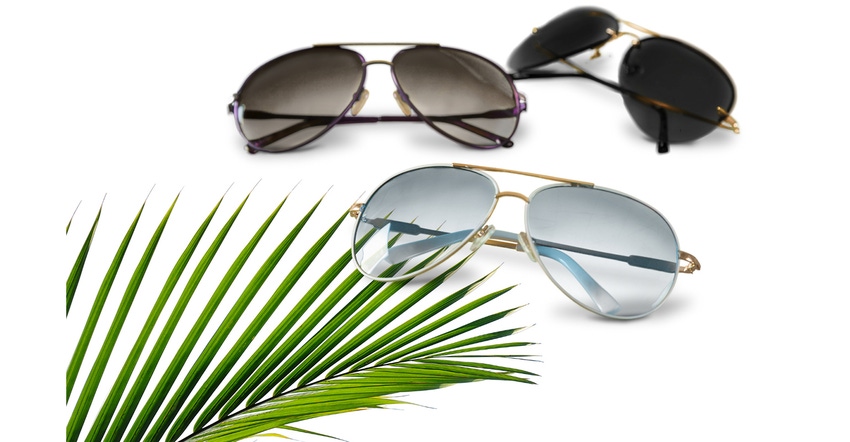In an industry first, China’s Polyray uses Sabic’s certified renewable polycarbonate to manufacture eyewear lenses.
March 24, 2021

Chemicals company Sabic has announced that eyewear-lens maker Polyray will use its certified renewable polycarbonate Lexan to manufacture lenses for several eyewear end applications, such as sunglasses, safety glasses, and sports goggles.
Lexan is part of Sabic’s TRUCIRCLE portfolio. According to the company’s cradle-to-gate, peer-reviewed LCA study, using the Lexan polycarbonate resin can substantially reduce the carbon footprint — potentially by as much as 61% — and fossil depletion by as much as 35%.
“Polyray is the first in the lens industry to offer a renewable polycarbonate lens for our customers, in order to keep up with the trend toward more sustainability in the development of plastic lens components,” said Jessica Chen, Polyray Commercial Director. “By producing lenses using renewable resources, we can make a significant sustainability impact. We are happy to partner with Sabic, whose polycarbonate based on certified renewable feedstock ensures that the customer does not have to compromise on design or application, as the requirements for Polyray’s lens products made of Sabic’s materials remain the same,” Chen continued.
“We are delighted to have Polyray onboard as our first customer in the eyewear industry to use our new material in their end applications,” commented Sergi Monros, Vice President of Performance Polymers & Industry Solutions for Petrochemicals at Sabic. “As well as providing the sustainable solution they were looking for, we are pleased to have been able to introduce Polyray to the ISCC certification system.”
Headquartered in Xiamen, China, Polyray is the first ISCC Plus–certified lens supplier for the eyewear industry. ISCC is an independent global organization that provides the leading certification system addressing sustainability requirements for all feedstocks and markets, as well as traceability throughout the supply chain.
“Since the launch in February of our BioPC lens, part of our Bio-Line portfolio, we have had a lot of interest shown in the solution from a broad range of eyewear brands. It provides identical product specification to a fossil-based PC lens, such as outstanding impact resistance and high optical quality, but with an environmental profile. BioPC can be used as sunglasses lenses, demo lenses and many other lens applications, such as polarized, photo-chromic and anti-blue light lenses, perfect for sport, lifestyle, safety glasses and also snow goggles,” said Chen.
About the Author(s)
You May Also Like


